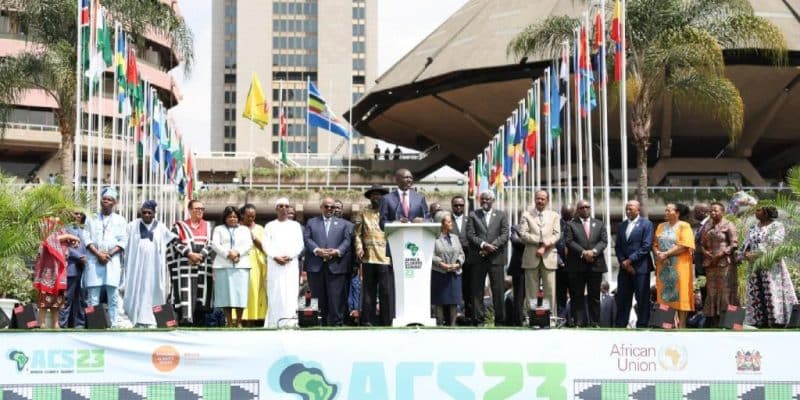The African Climate Summit held in Kenya as part of Africa Climate Week (ACW) organised by the United Nations Climate Change Organization (UN Climate) was a success. The Nairobi Declaration, which crowned the two days of sometimes stormy discussions, called for the introduction of a global carbon tax and the acceleration of the continent's energy transition. This historic event was hailed by international leaders such as Ursula Von Der Leyen, President of the European Commission, who said that "it is time to move from words to deeds" in the face of climate change.
“African countries are carrying out their green projects using debt, whereas adaptation funding should be supported by grants, in line with the commitments agreed in the Paris climate agreement”. These are the words of Macky Sall, President of the Republic of Senegal. He was speaking at the first-ever African Climate Summit, held in Kenya as part of Africa Climate Week (ACW) organised by the United Nations and the African Union (AU).
Despite the disagreements that preceded its unanimous adoption, the Nairobi Declaration “will serve as the basis for Africa’s common position in the global climate change process up to and beyond COP28 (Dubai)”, states the final text. The Heads of State and Government are calling for the introduction of a global carbon tax and “reform of the international financial institutions” to combat the effects of climate change on the continent.
Reform of the financial architecture and carbon taxation
The document rightly recommends “the creation of new International Monetary Fund (IMF) special drawing rights” for the climate. The United States of America is not indifferent to this measure, since John Kerry, the US climate envoy, made it clear at the Nairobi meeting that “17 of the 20 countries most affected by climate change are in Africa, while the world’s 20 richest nations produce 80% of global CO2 emissions”.
But it was the introduction of a much-discussed carbon tax that was the key element of the Nairobi Declaration. If it is approved by the international community, it will be paid to the countries on the front line of natural disasters and atmospheric pollution. This will be a real constraint for the major industrial players, whose environmental impact transcends continents.
Financing adaptation to climate change and green energies
The other major resolution of African political leaders is to join forces to tackle the energy crisis by stepping up investment in green energy. Kenyan President William Ruto welcomed the $23 billion pledged on the spot, including $4.5 billion pledged by the United Arab Emirates (UAE), the host country of the climate summit opening in Dubai on 30 November 2023. These funds should help to diversify the electricity mix through “the development of 15 gigawatts of clean energy by 2030″. This capacity is essential, given that 600 million Africans still do not have access to electricity.
Read also-African Climate Week: 5 days to shape the economic and climate future
A date has been set in Nairobi for the next African Climate Summit in two years’ time. A very important deadline for Akinwumi Adesina. In the absence of the famous 100 billion dollars that the rich countries had pledged to provide each year as part of the Paris Agreement, the President of the African Development Bank (AfDB) insisted that his institution would release “25 billion dollars to finance adaptation to climate change between now and 2025”.
Benoit-Ivan Wansi







